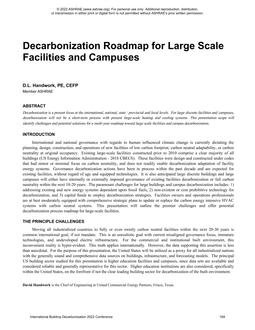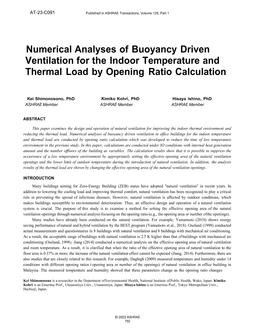
C057 — Reinforcement Learning Approach for Predicting Occupant Preferences in Thermostat Set-Points
Click here to purchase
The building energy management systems (BEMS) of many commercial buildings rely on constant thermostat set-points in their HVAC controllers, which often results in increased energy use and compromised occupant comfort. Therefore, occupant-centric controls (OCC) have gained increased research interest in reducing the energy consumption of buildings and improving occupant comfort. One of the goals of OCC is the development of smart thermostats that could learn from occupants’ set-point adjustments to derive adaptive set-points. This research utilizes data from indoor environments and occupants’ thermostat interactions to learn occupant temperature set-point preferences using a reinforcement learning (RL) algorithm. RL is a promising technique in this field because of its capabilities in learning user behavior without the need for occupant behavior and occupancy models. A tabular Q-learning algorithm is implemented using the Python API within an EnergyPlus simulation environment with an occupant behavior model. The objective is to learn the occupant behavior while minimizing energy use. Results demonstrated the ability of the developed RL algorithms to learn preferred set-points and adjust them accordingly, hence reducing occupant interactions. We propose future research for the implementation and field testing of smart thermostats. Such research would aid in shifting the process of maintaining occupant comfort from being the responsibility of building operators to being an automated process as well as achieving energy savings by taking decisions that consider long-term benefit.
Product Details
- Published:
- 2023
- Number of Pages:
- 8
- Units of Measure:
- Dual
- File Size:
- 1 file , 4.3 MB
- Product Code(s):
- D-AT-23-C057
- Note:
- This product is unavailable in Russia, Belarus

